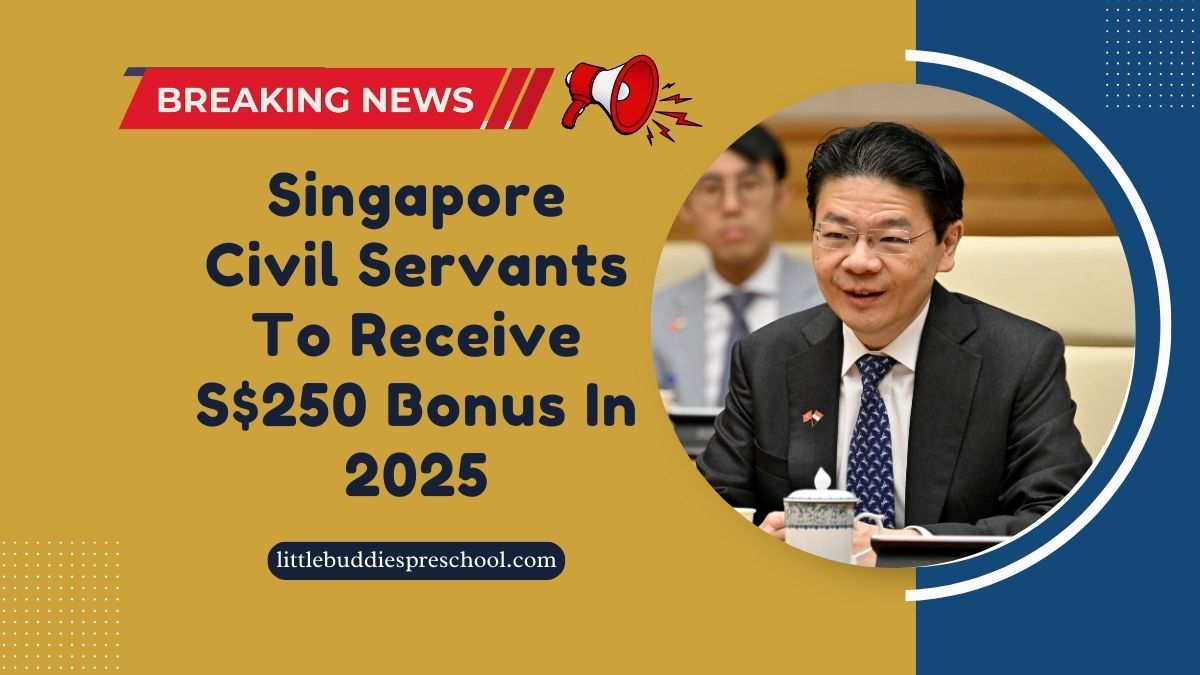In a significant move to uplift the spirits of public sector workers, the Singapore government has introduced a one-time S$250 bonus for all eligible civil servants in 2025.
This timely initiative highlights the nation’s continued support for its public workforce amidst rising living costs and global economic uncertainties.
More than just financial assistance, the payout stands as a symbol of appreciation for those working tirelessly to uphold Singapore’s excellence in governance and public service.
Why the S$250 Bonus Matters
Civil servants form the backbone of Singapore’s administration, ensuring smooth operation across education, healthcare, infrastructure, and law enforcement.
In light of inflation and a shifting global economic climate, this S$250 payout acts as both a financial cushion and a morale booster for thousands of public employees.
Breakdown of the 2025 S$250 Bonus
The table below provides a clear view of how the bonus is structured and who benefits:
| Detail | Description |
|---|---|
| Amount | S$250 (one-time payment) |
| Eligibility | All full-time civil servants |
| Announcement Date | May 2025 |
| Payout Timeline | Expected by end of Q2 2025 |
| Purpose | Recognize contributions and support morale |
| Broader Objective | Economic stimulation & workforce motivation |
Civil Servants: The Backbone of National Growth
From teachers and nurses to administrative professionals and emergency responders, civil servants play a vital role in Singapore’s long-term development. This bonus serves as a recognition of their contributions in executing national initiatives such as:
- Digital transformation of government services
- Enhancing public infrastructure
- Managing public health and safety
- Supporting community well-being
The S$250 incentive is small in absolute value but carries high symbolic importance, reaffirming that public service dedication is deeply valued.
Economic Impact Beyond the Public Sector
This move is also seen as a strategic economic measure. While modest, the distributed bonus encourages domestic consumption.
With thousands of employees receiving the payout, the resulting spending boost can help support small businesses and local economic activity.
Moreover, the bonus reflects Singapore’s multi-pronged policy approach—balancing economic stimulus with social acknowledgment. Even small gestures can have wide-reaching psychological and economic effects when scaled to the national level.
Public Sentiment and Future Implications
Initial reactions to the bonus have been overwhelmingly positive. Many see it as a much-needed sign that the government is listening to and appreciating its employees.
While discussions continue on broadening pay structures and benefits across all sectors, this S$250 payout is a step in the right direction.
This measure could also lead to more frequent or varied employee recognition schemes, reinforcing Singapore’s reputation as a nation that values and invests in its people.
The S$250 bonus for civil servants in Singapore is more than a financial perk—it’s a statement of gratitude.
In 2025, this timely gesture reflects the government’s understanding of the value civil servants bring to national growth.
It also sets a positive precedent for future recognition, ensuring that Singapore continues to lead with efficiency, appreciation, and people-first governance.
FAQs
Who qualifies for the S$250 civil service bonus in 2025?
All full-time Singaporean civil servants employed under government departments and statutory boards are eligible for the bonus.
When will the S$250 bonus be paid out?
The government has announced that the payout will be processed by the end of Q2 2025, likely between May and June.
Is this S$250 a recurring bonus or a one-time payment?
This is a one-time bonus intended to recognize contributions in 2025 and support workers during economic uncertainty.

